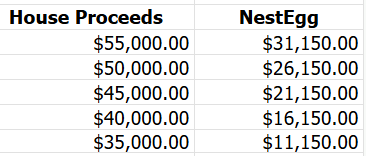by Semify
Remodeling your home doesn’t have to break the bank. With smart planning and a focus on long-term value, you can transform your space while keeping your budget in check. From energy-efficient upgrades to choosing sustainable materials, small changes can lead to big savings over time.
Prioritizing key areas—like your HVAC system, bathroom, and roofing—can make your home more functional and attractive while lowering maintenance costs. Whether you’re staying put or preparing to sell, strategic remodeling decisions can increase your property’s appeal and efficiency. Here are a few ideas to help you with money management while improving your living space.
Upgrade Your HVAC System for Long-Term Savings
Heating and cooling account for a significant portion of your utility bills, making HVAC upgrades a cost-saving investment. Modern systems are far more energy-efficient than those installed even a decade ago, using less energy to maintain consistent indoor comfort. A new unit may cost thousands upfront, but the long-term savings on energy bills can make it worthwhile, especially in regions with extreme seasonal temperatures. According to Modernize, installing an HVAC system costs between $6,224 and $11,434, so choosing a system that fits your home’s size and layout is crucial. Oversized or undersized systems can drive up energy usage and cause uneven heating or cooling.
In addition to the unit itself, other components can play a big role in overall performance. Proper insulation prevents temperature loss, reducing the workload on your system and cutting costs year-round. Smart thermostats offer even greater control by learning your habits and adjusting temperatures automatically, leading to added savings. Routine maintenance—like changing filters and scheduling annual tune-ups—can also extend the system’s lifespan and improve energy efficiency. By focusing on both equipment and supporting elements, homeowners can create a more efficient, comfortable, and cost-effective home environment, leading to better money management skills.
Remodel the Primary Bathroom Strategically
The bathroom is one of the most-used spaces in the house, and remodeling it can increase both comfort and resale value. Instead of a full renovation, focus on changes that make a difference—like new fixtures, better lighting, or water-saving features. Many homeowners are choosing to expand the shower area, improving both function and style. In fact, 80% of primary bathroom remodels include upgrading the shower and making it larger, according to Gitnux. These upgrades not only elevate the experience but can also attract future buyers and reduce future maintenance costs.
Choose Metal Roofing for Durability and Sustainability
When it’s time to replace your roof, materials matter. Metal roofing has become an increasingly popular choice thanks to its durability, longevity, and eco-friendly qualities. It reflects heat, which can help lower cooling costs during warmer months. Metal roofs are nearly 100% recyclable and made with a minimum of 25% recycled material, according to This Old House. Though the initial investment may be higher than asphalt shingles, a metal roof can last 40–70 years with minimal upkeep, offering substantial savings over time and reducing landfill waste.
Understanding money management through remodeling is about making smart, forward-thinking choices. By investing in energy-efficient systems, prioritizing high-traffic areas like the bathroom, and selecting sustainable materials such as metal roofing, you can reduce future expenses and boost your home’s value. These updates don’t just make your space more beautiful—they make it more economical and practical for years to come.
Whether you’re improving your forever home or preparing to sell, these remodel ideas offer a path to smart savings and greater peace of mind. Even modest upgrades, when chosen wisely, can create lasting value, improve daily living, and contribute to a more sustainable, energy-conscious household. Best of luck on your sustainable home remodel!




